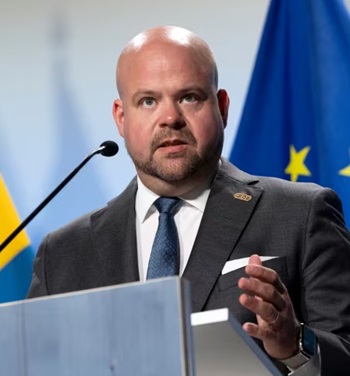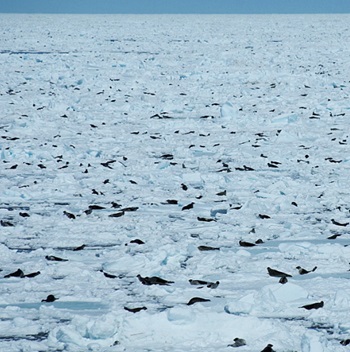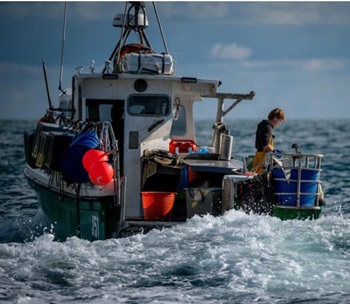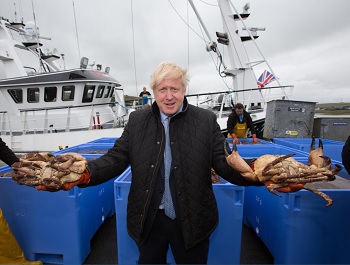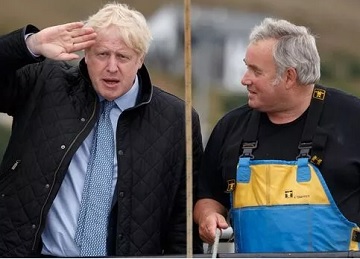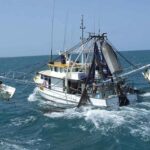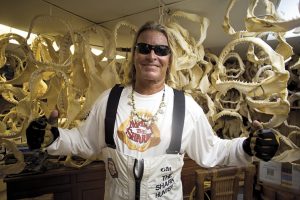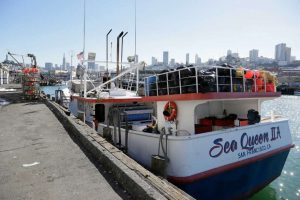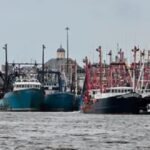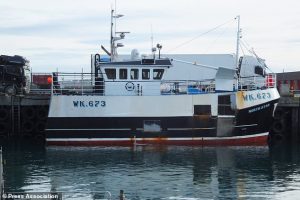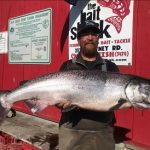Tag Archives: European Union
Want some of your cod back? European Union requests exchange of its northern cod for a chunk of redfish quota
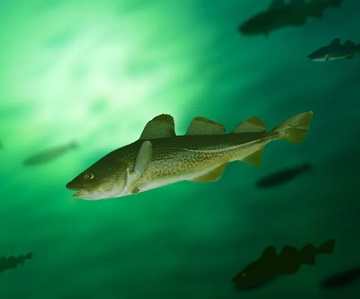 The European Union wants to give back some of its offshore northern cod quota in exchange for some of Canada’s offshore redfish quota. According to Fisheries, Forestry and Agriculture Minister Gerry Byrne, the EU has indicated it is willing to give back 70 tonnes of northern cod and wants 245 tonnes of red fish in return. According to fisheries management information published by the Northwest Atlantic Fisheries Organization (NAFO), the European Union has a total allowable catch of 735 tonnes of northern cod in NAFO Zone 3L — off eastern Newfoundland — for the 2024-2025 season, which runs until June 30. The EU was allocated nearly 1,094 tonnes of redfish for the same zone for the current season. more, >>CLICK TO READ<< 16:14
The European Union wants to give back some of its offshore northern cod quota in exchange for some of Canada’s offshore redfish quota. According to Fisheries, Forestry and Agriculture Minister Gerry Byrne, the EU has indicated it is willing to give back 70 tonnes of northern cod and wants 245 tonnes of red fish in return. According to fisheries management information published by the Northwest Atlantic Fisheries Organization (NAFO), the European Union has a total allowable catch of 735 tonnes of northern cod in NAFO Zone 3L — off eastern Newfoundland — for the 2024-2025 season, which runs until June 30. The EU was allocated nearly 1,094 tonnes of redfish for the same zone for the current season. more, >>CLICK TO READ<< 16:14
Norfolk businesses reflect on backing Brexit
 It has been five years since the UK officially left the European Union and became an independent nation. Opinion polls suggest a majority of people now believe Brexit has been bad for the UK – and it is widely accepted it has, in the short term at least, adversely affected some of those who trade with the EU. Two Norfolk business owners, who both voted Leave, have shared their views on whether it was right to back Brexit. Steven Williamson is the director of Lynn Shellfish, based in King’s Lynn. His factory processes freshly caught whelks, shrimps, cockles, mussels and scallops, most of which are sold to the European and Asian markets. Rachael Waring is the co-owner of Warings Furniture, which makes products for the hospitality trade and employs about 60 people in Larling. more, >>CLICK TO READ<< 07:42
It has been five years since the UK officially left the European Union and became an independent nation. Opinion polls suggest a majority of people now believe Brexit has been bad for the UK – and it is widely accepted it has, in the short term at least, adversely affected some of those who trade with the EU. Two Norfolk business owners, who both voted Leave, have shared their views on whether it was right to back Brexit. Steven Williamson is the director of Lynn Shellfish, based in King’s Lynn. His factory processes freshly caught whelks, shrimps, cockles, mussels and scallops, most of which are sold to the European and Asian markets. Rachael Waring is the co-owner of Warings Furniture, which makes products for the hospitality trade and employs about 60 people in Larling. more, >>CLICK TO READ<< 07:42
EU, Britain to face off in post-Brexit fishing battle case
 A tiny silver fish which is an important food source in the North Sea will take centre stage Tuesday as the European Union and Britain square off over post-Brexit fishing rights. The bitter arbitration case over sandeels is seen as a bellwether for other potential litigation between London and Brussels in a perennial hot-bed industry, experts said. Tuesday’s clash at the Hague-based Permanent Court for Arbitration also marks the first courtroom trade battle between the 27-member trading bloc and Britain since it left the EU in 2020. more, >>CLICK TO READ<< 06:08
A tiny silver fish which is an important food source in the North Sea will take centre stage Tuesday as the European Union and Britain square off over post-Brexit fishing rights. The bitter arbitration case over sandeels is seen as a bellwether for other potential litigation between London and Brussels in a perennial hot-bed industry, experts said. Tuesday’s clash at the Hague-based Permanent Court for Arbitration also marks the first courtroom trade battle between the 27-member trading bloc and Britain since it left the EU in 2020. more, >>CLICK TO READ<< 06:08
‘Hollow words won’t protect Scottish fishing, industry chief warns
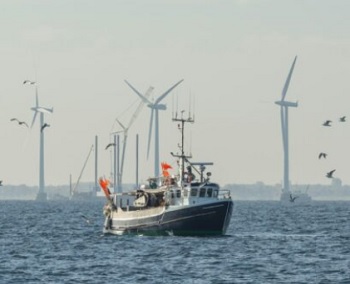 Offshore wind farms in the North Sea and the prime minister’s ambitions to “reset” relations between the UK and European Union are major dangers for the sector, they say. And they want politicians in Edinburgh, London and further afield to “radically rethink” their approach to the sector. Scottish Fishermen’s Federation (SFF) chief executive Elspeth Macdonald outlined these concerns in her new year message to ministers and civil servants “across the UK and beyond”. She said a widespread sense of crisis had spawned a bout of “initiative-itis” by the Scottish and UK governments. more, >>CLICK TO READ<< 09:49
Offshore wind farms in the North Sea and the prime minister’s ambitions to “reset” relations between the UK and European Union are major dangers for the sector, they say. And they want politicians in Edinburgh, London and further afield to “radically rethink” their approach to the sector. Scottish Fishermen’s Federation (SFF) chief executive Elspeth Macdonald outlined these concerns in her new year message to ministers and civil servants “across the UK and beyond”. She said a widespread sense of crisis had spawned a bout of “initiative-itis” by the Scottish and UK governments. more, >>CLICK TO READ<< 09:49
Portugal: Cod fishing near Canada reopens after 32 years
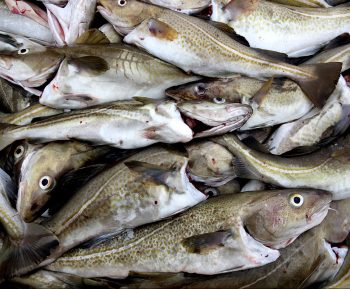 Portugal’s minister of agriculture and fisheries, José Manuel Fernandes, announced on Sunday the reopening of a cod fishing area near Canada after 32 years and said that current scientific data contradicted the proposed cut in red seabream. Speaking to Lusa, José Manuel Fernandes said that the 35% cut, to 399 tonnes, in catches of red seabream in Azorean waters, proposed on 31 October by the EU government, is based on scientific data from 2021. ‘This cut is based on scientific data from 2021 and does not reflect the recovery’ of red seabream that has been observed in the meantime, the minister emphasised, speaking to Lusa in Brussels. more, >>CLICK TO READ<< 12:11
Portugal’s minister of agriculture and fisheries, José Manuel Fernandes, announced on Sunday the reopening of a cod fishing area near Canada after 32 years and said that current scientific data contradicted the proposed cut in red seabream. Speaking to Lusa, José Manuel Fernandes said that the 35% cut, to 399 tonnes, in catches of red seabream in Azorean waters, proposed on 31 October by the EU government, is based on scientific data from 2021. ‘This cut is based on scientific data from 2021 and does not reflect the recovery’ of red seabream that has been observed in the meantime, the minister emphasised, speaking to Lusa in Brussels. more, >>CLICK TO READ<< 12:11
Norway, EU and UK conclude 2025 fisheries deal
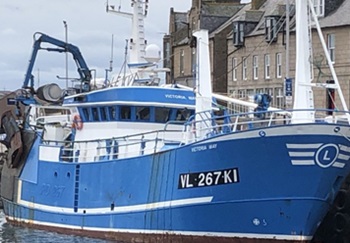 A tripartite agreement on quotas and management of joint North Sea stocks has been reached between Norway, the EU and the UK. ‘I am satisfied that we have a fisheries agreement with the EU and Britain. The agreement we have now entered into means that we agree on quotas for stocks we manage together in the North Sea and is important for all three parties. The agreement contributes to sustainable management,’ says Norway’s Minister of Fisheries and Oceans Marianne Sivertsen Næss. The parties also agree to continue closing the spawning grounds for cod in 2025. The closures will take place in the first quarter. more, >>CLICK TO READ<< 12:07
A tripartite agreement on quotas and management of joint North Sea stocks has been reached between Norway, the EU and the UK. ‘I am satisfied that we have a fisheries agreement with the EU and Britain. The agreement we have now entered into means that we agree on quotas for stocks we manage together in the North Sea and is important for all three parties. The agreement contributes to sustainable management,’ says Norway’s Minister of Fisheries and Oceans Marianne Sivertsen Næss. The parties also agree to continue closing the spawning grounds for cod in 2025. The closures will take place in the first quarter. more, >>CLICK TO READ<< 12:07
DFO Affirms Canada’s Control Over Northern Cod Management
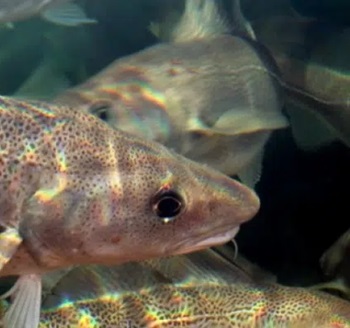 The Department of Fisheries and Oceans is weighing in following concerns raised about northern cod management by provincial fisheries minister Gerry Byrne. A recent EU news release suggested that North Atlantic Fishery Organization (NAFO) was making the management decisions when it came to northern cod, but DFO says there is no debate that Canada manages the stock. According to the federal department, Canada alone completes the scientific assessment of the stock and sets the annual total allowable catch. more, >>CLICK TO READ<< 07:31
The Department of Fisheries and Oceans is weighing in following concerns raised about northern cod management by provincial fisheries minister Gerry Byrne. A recent EU news release suggested that North Atlantic Fishery Organization (NAFO) was making the management decisions when it came to northern cod, but DFO says there is no debate that Canada manages the stock. According to the federal department, Canada alone completes the scientific assessment of the stock and sets the annual total allowable catch. more, >>CLICK TO READ<< 07:31
Fisheries Minister Taken Aback by EU Boast that NAFO Has Management of Northern Cod Fishery
 The province’s fisheries minister is encouraging Newfoundlanders and Labradorians to rally for joint management of the stocks off the province’s coast after learning that NAFO has taken control of management of the northern cod fishery. A recent European Union release following Northwest Atlantic Fisheries Organization meetings in Halifax indicates that based on an EU-Canada proposal on northern cod, NAFO “reopened the fishery and established a revised sharing arrangement.” It goes on to say that “it was fair and necessary to increase the EU share to reflect the current composition of the EU.” The release also indicates that NAFO is increasing fishing opportunities for 3M cod outside Canada’s 200 mile limit. more, >>CLICK TO READ<< 09:08
The province’s fisheries minister is encouraging Newfoundlanders and Labradorians to rally for joint management of the stocks off the province’s coast after learning that NAFO has taken control of management of the northern cod fishery. A recent European Union release following Northwest Atlantic Fisheries Organization meetings in Halifax indicates that based on an EU-Canada proposal on northern cod, NAFO “reopened the fishery and established a revised sharing arrangement.” It goes on to say that “it was fair and necessary to increase the EU share to reflect the current composition of the EU.” The release also indicates that NAFO is increasing fishing opportunities for 3M cod outside Canada’s 200 mile limit. more, >>CLICK TO READ<< 09:08
Opposition to seal ban grows within EU, where hunters alliance is optimistic rules will change
A group representing hunters in the Nordic countries says it’s more optimistic than ever that the European Union will lift a longtime ban on trading seal products. The regulation, implemented in 2009 after a highly successful campaign from animal rights groups, deprived Canadian sealers of their primary market. “Our hope and expectation is that the ban will be reversed, and that trade can be possible again,” said Johan Svalby, senior advisor for international affairs at the Nordic Hunters Alliance. Since beginning its review of the current regulations, thousands of individuals and organizations have participated in consultations, including the Canadian, Newfoundland and Labrador, Nunavut and Northwest Territories governments, which argued for removing the ban. more, >>CLICK TO READ<< 07:27
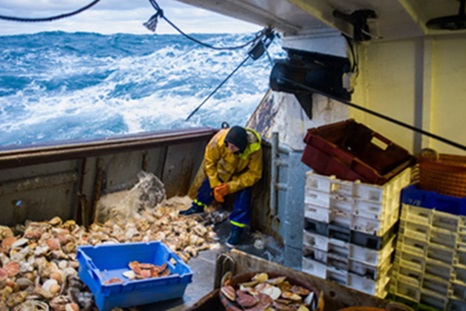
EU to demand continued fishing rights in British waters
The European Union (EU) will demand to keep its fishing rights in British waters, the bloc’s Brexit negotiator has told MEPs. The post-Brexit deal agreed by the EU saw its fishing quota in British waters cut by 25 per cent, but European fishermen were allowed continued access to parts of the UK’s coastal waters. As the deal nears its expiry in 2026, the EU is keen to start negotiating as soon as possible to keep its access to the UK’s exclusive economic zone (EEZ), which extends by up to 200 nautical miles from the coast. Government officials fear the EU will only renegotiate the Brexit trade agreement – a key part of Labour’s manifesto – if the UK guarantees European fishermen full access to its seas after 2026. more, >>CLICK TO READ<< 07:27
Labour needs to fix British fishing – will it stand by its principles now it is in power?
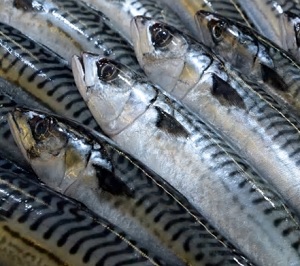 The question now is whether Labour will use its landslide majority to fix the extraordinary neglect of our marine environment that it previously lacked the votes for. Back in 2020, when the fisheries bill was making its way through parliament, Labour’s fisheries spokesperson, Luke Pollard, made the case that the prime objective of the bill should be sustainability: there should be a duty on ministers to take the advice of scientists when allocating fishing opportunities so as to avoid overfishing. He also argued that as the right to fish was a public asset, which ministers conceded during the course of the bill, preference should be given to the part of the fleet which had the highest levels of employment and the lowest environmental impact: the smaller boats, whose activities are limited naturally by the weather. more, >>CLICK TO READ 08:24
The question now is whether Labour will use its landslide majority to fix the extraordinary neglect of our marine environment that it previously lacked the votes for. Back in 2020, when the fisheries bill was making its way through parliament, Labour’s fisheries spokesperson, Luke Pollard, made the case that the prime objective of the bill should be sustainability: there should be a duty on ministers to take the advice of scientists when allocating fishing opportunities so as to avoid overfishing. He also argued that as the right to fish was a public asset, which ministers conceded during the course of the bill, preference should be given to the part of the fleet which had the highest levels of employment and the lowest environmental impact: the smaller boats, whose activities are limited naturally by the weather. more, >>CLICK TO READ 08:24
NAFO Moving Forward with Offshore Dragger Access Despite Legal Injunction and Historical Agreement for Northern Cod
 Despite vocal opposition from industry and environmental groups, the North Atlantic Fisheries Organization (NAFO) is making strides towards allowing international and domestic offshore draggers back on the Northern cod grounds as early as this fall. The European Union (EU) is awaiting approval of their harvesting proposal from the NAFO Commission to get access to the fishery. “It is our strong opinion that the NAFO Commission should defer reopening the offshore allocation for the 2J3KL northern cod fishery. The reopening of the commercial cod fishery was done under poor faith by Minister Lebouthillier and Prime Minster Justin Trudeau; with both went against the advice of science, environment and industry, and also broke a four-decade commitment to our province,” says Pretty. “By lifting the 32-year moratorium on commercial fishing on June 26, 2024, the Government of Canada is further corporatizing public resources, limiting the economic sustainability of coastal communities, and breaking a decades long promise to the province of Newfoundland and Labrador,” Pretty explains. more, >>CLICK TO READ<<07:50
Despite vocal opposition from industry and environmental groups, the North Atlantic Fisheries Organization (NAFO) is making strides towards allowing international and domestic offshore draggers back on the Northern cod grounds as early as this fall. The European Union (EU) is awaiting approval of their harvesting proposal from the NAFO Commission to get access to the fishery. “It is our strong opinion that the NAFO Commission should defer reopening the offshore allocation for the 2J3KL northern cod fishery. The reopening of the commercial cod fishery was done under poor faith by Minister Lebouthillier and Prime Minster Justin Trudeau; with both went against the advice of science, environment and industry, and also broke a four-decade commitment to our province,” says Pretty. “By lifting the 32-year moratorium on commercial fishing on June 26, 2024, the Government of Canada is further corporatizing public resources, limiting the economic sustainability of coastal communities, and breaking a decades long promise to the province of Newfoundland and Labrador,” Pretty explains. more, >>CLICK TO READ<<07:50
As Europe reviews its rules on seal products, Canada calls for easing of restrictions
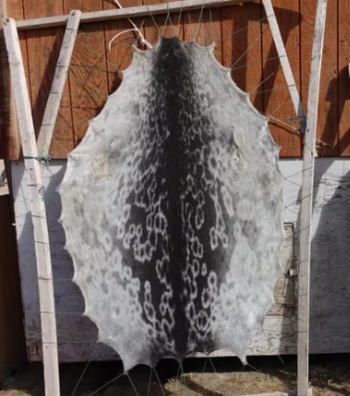 The Canadian government is calling on the European Union to ease restrictions on seal products as member states review trade regulations. Ottawa said in a letter dated Tuesday to the European Commission’s vice-president that Canada has been given the opportunity to “provide input” on the seal trade while the union fine tunes its rules. The outcome is scheduled to be published on the site in eight weeks. In 2009, the European Union limited imports for Canadian seal products, citing the “pain, distress, fear and other forms of suffering” of seals because of the way in which they are killed and skinned. Canada has many species of seals including bearded, grey, harbour, harp, hooded and ringed. Three of these — grey, harp, and hooded — are killed for commercial uses. more, >>CLICK TO READ<< 10:44
The Canadian government is calling on the European Union to ease restrictions on seal products as member states review trade regulations. Ottawa said in a letter dated Tuesday to the European Commission’s vice-president that Canada has been given the opportunity to “provide input” on the seal trade while the union fine tunes its rules. The outcome is scheduled to be published on the site in eight weeks. In 2009, the European Union limited imports for Canadian seal products, citing the “pain, distress, fear and other forms of suffering” of seals because of the way in which they are killed and skinned. Canada has many species of seals including bearded, grey, harbour, harp, hooded and ringed. Three of these — grey, harp, and hooded — are killed for commercial uses. more, >>CLICK TO READ<< 10:44
EU seal ban causing more harm than good, says Swedish researcher

Danny Pottle is an Inuk elder, who experienced first hand the impacts of the anti-sealing movement growing up in Rigolet, Labrador.
A Swedish researcher says the European Union’s ban on the import and sale of all seal products has caused more harm than good, and now is the time to lift the 15-year-old ban. Sven-Gunnar Lunneryd, who researches aquatic resources at the Swedish University for Agricultural Sciences, says ending the ban would help seal hunters and restore depleted fish stocks. His research demonstrates that in the Baltic Sea, where the grey seal population has recently increased rapidly, having a negative impact coastal fisheries in the region. “We maybe need to half the seal population to get the chance for depleted fish stocks to recover,” said Lunneryd. more, >>CLICK TO READ<< 09:53
Keir Starmer warned ‘act now’ to stop EU fishermen plundering cod in UK waters
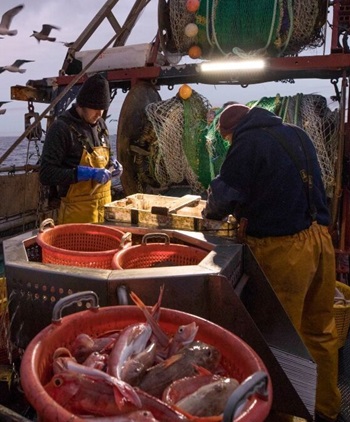 Politicians in Brussels have started rattling their sabres as the European Union seeks to lay down its markers and roll-over the Brexit fisheries deal which saw the UK ‘give up everything’, an industry expert says. Sir Keir Starmer has been urged to act and stop fishers from the European Union plundering fish stocks in UK territorial waters. The EU has extensive access to Britain’s waters in a reciprocal arrangement which in practice is more advantageous to European countries. EU members did “very well” under the Trade and Cooperation Agreement (TCA) deal signed by Boris Johnson’s government and the bloc, with French fishers taking over 80 percent of cod stocks on the UK side of the English Channel and Belgian counterparts catching some 70 percent of Dover sole in Welsh waters, according to Mike Cohen, Chief Executive of the National Federation of Fishermen’s Organisations (NFFO). more, >>CLICK TO READ<< 12:01
Politicians in Brussels have started rattling their sabres as the European Union seeks to lay down its markers and roll-over the Brexit fisheries deal which saw the UK ‘give up everything’, an industry expert says. Sir Keir Starmer has been urged to act and stop fishers from the European Union plundering fish stocks in UK territorial waters. The EU has extensive access to Britain’s waters in a reciprocal arrangement which in practice is more advantageous to European countries. EU members did “very well” under the Trade and Cooperation Agreement (TCA) deal signed by Boris Johnson’s government and the bloc, with French fishers taking over 80 percent of cod stocks on the UK side of the English Channel and Belgian counterparts catching some 70 percent of Dover sole in Welsh waters, according to Mike Cohen, Chief Executive of the National Federation of Fishermen’s Organisations (NFFO). more, >>CLICK TO READ<< 12:01
Brexit fury as fears grow Keir Starmer will give EU fishing boats access to UK waters
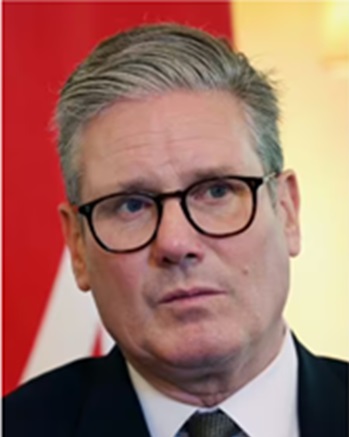 The European Union will demand access to Britain’s fishing waters in return for Sir Keir Starmer’s reset in UK-EU relations, according to reports. The Prime Minister said he wants a “better deal” and spoke of resetting the UK’s relationship with Europe at the end of a European Political Community summit at Blenheim Palace, Oxfordshire, on Thursday (July 18). Brussels bureaucrats are reportedly preparing a list of “offensive interests” the bloc will deploy in future talks with London, according to the Daily Telegraph. Reports the EU would seek access to British fishing waters sparked outrage on social media, with Richard Tice MP, Deputy Leader of Reform UK, tweeting: “NO NO NO. We want our fishing waters back, not giving more away.” more, >>CLICK TO READ<< 12:21
The European Union will demand access to Britain’s fishing waters in return for Sir Keir Starmer’s reset in UK-EU relations, according to reports. The Prime Minister said he wants a “better deal” and spoke of resetting the UK’s relationship with Europe at the end of a European Political Community summit at Blenheim Palace, Oxfordshire, on Thursday (July 18). Brussels bureaucrats are reportedly preparing a list of “offensive interests” the bloc will deploy in future talks with London, according to the Daily Telegraph. Reports the EU would seek access to British fishing waters sparked outrage on social media, with Richard Tice MP, Deputy Leader of Reform UK, tweeting: “NO NO NO. We want our fishing waters back, not giving more away.” more, >>CLICK TO READ<< 12:21
Nigel Farage vows to kick EU fishermen out of UK waters in Reform bombshell
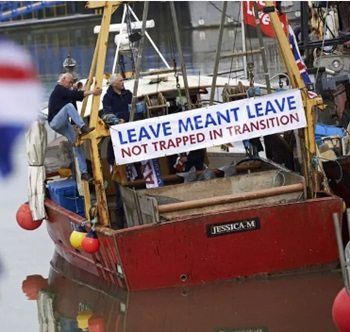 Nigel Farage has vowed to kick EU fishermen out of British waters in a move which will come as a major boost to many who campaigned to take back control of British waters after Brexit. The Reform UK leader outlined his vision in his party’s manifesto, Our Contract with You, launched today in Merthyr Tydfil in south Wales. The document pledges to – among other things – stop EU fleets taking British quotas; expand the Royal Navy overseas squadron; and ban massive supertrawlers such as the Dutch-flagged Margeris from plundering UK waters. The document proclaims the the UK government has “betrayed the industry”. more, >>CLICK TO READ<< 08:53
Nigel Farage has vowed to kick EU fishermen out of British waters in a move which will come as a major boost to many who campaigned to take back control of British waters after Brexit. The Reform UK leader outlined his vision in his party’s manifesto, Our Contract with You, launched today in Merthyr Tydfil in south Wales. The document pledges to – among other things – stop EU fleets taking British quotas; expand the Royal Navy overseas squadron; and ban massive supertrawlers such as the Dutch-flagged Margeris from plundering UK waters. The document proclaims the the UK government has “betrayed the industry”. more, >>CLICK TO READ<< 08:53
Fishy Business: How Brexit Failed To Help a Dying Industry
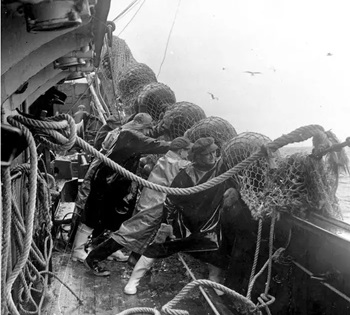 Brexit promised fishermen to take back control of the waters and get rid of foreign boats in British waters. But since the UK broke up with the European Union, little has changed. British fishing communities continue to struggle, as big companies, many of them international conglomerates, have bought quotas for the country’s most valuable species, controlling the price of the fish from sea to plate. Fishermen believed that the promised reforms, made possible by leaving what they saw as a restrictive European Union, would revive the national fishing industry, and with it bring back — at least to some extent — the prosperity of the past. They turned out to be empty promises. more, >>CLICK TO READ<< 08:12
Brexit promised fishermen to take back control of the waters and get rid of foreign boats in British waters. But since the UK broke up with the European Union, little has changed. British fishing communities continue to struggle, as big companies, many of them international conglomerates, have bought quotas for the country’s most valuable species, controlling the price of the fish from sea to plate. Fishermen believed that the promised reforms, made possible by leaving what they saw as a restrictive European Union, would revive the national fishing industry, and with it bring back — at least to some extent — the prosperity of the past. They turned out to be empty promises. more, >>CLICK TO READ<< 08:12
Sealing the Future: Revive and promote the seal hunt, federal report recommends
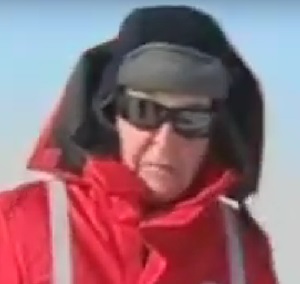 When Paul McCartney campaigned against the seal hunt in 2006, it was unclear how reliant the Inuit and some coastal community economies were on the trade. Three years later, the European Union banned all seal products. The market for seal products was decimated, and with it came the rise of poverty and suicide within Inuit communities despite exemptions for their products, Steven Lonsdale of the Qikiqtani Inuit Association told the Senate Committee on Fisheries and Oceans late last year. Now, a new report from that committee acknowledges the harm done by the ban and recommends Ottawa must do more to revive the struggling industry in what it has branded a call to action. more, >>CLICK TO READ 07:40
When Paul McCartney campaigned against the seal hunt in 2006, it was unclear how reliant the Inuit and some coastal community economies were on the trade. Three years later, the European Union banned all seal products. The market for seal products was decimated, and with it came the rise of poverty and suicide within Inuit communities despite exemptions for their products, Steven Lonsdale of the Qikiqtani Inuit Association told the Senate Committee on Fisheries and Oceans late last year. Now, a new report from that committee acknowledges the harm done by the ban and recommends Ottawa must do more to revive the struggling industry in what it has branded a call to action. more, >>CLICK TO READ 07:40
Crucial vote on total closure of 10% of EU fishing grounds
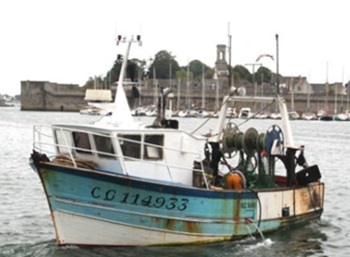 A pivotal vote is due to take place today as EU Member States vote on proposals to establish zero-fishing zones accounting for 10% of EU waters. The industry states that such a closure would serve to hit political targets without protecting ecologically sensitive habitats, describing the Commission’s strategy as a ‘shot in the dark.’ The Commission’s proposal is for a new objective which aims to place 10% of the EU’s seabed in ‘reference areas’ free from any human pressure in order to assess its natural variability. The European Bottom Fishing Alliance (EBFA) wants to see a postponement of the vote, given the lack of any impact assessment on fishing activities, the upcoming revision of the Law setting these objectives, and the current transitory political period with EU Parliamentary elections about to take place. more, >>CLICK TO READ<< 10:54
A pivotal vote is due to take place today as EU Member States vote on proposals to establish zero-fishing zones accounting for 10% of EU waters. The industry states that such a closure would serve to hit political targets without protecting ecologically sensitive habitats, describing the Commission’s strategy as a ‘shot in the dark.’ The Commission’s proposal is for a new objective which aims to place 10% of the EU’s seabed in ‘reference areas’ free from any human pressure in order to assess its natural variability. The European Bottom Fishing Alliance (EBFA) wants to see a postponement of the vote, given the lack of any impact assessment on fishing activities, the upcoming revision of the Law setting these objectives, and the current transitory political period with EU Parliamentary elections about to take place. more, >>CLICK TO READ<< 10:54
Fish about to be plundered off coast of UK as EU about to strike major deal with Iceland
 A non-EU country may soon be allowed to fish in waters just miles away from UK shores thanks to the European Union, sparking fury among fishermen closer to home. Fishing officials in Ireland are worried that they have not been consulted on the negotiations, which could be nearing the final stages of approval. Iceland reportedly wants to strike a deal so that they can catch blue whiting which are common in Irish waters but cannot be found near the Nordic nation. Concerns are now growing that fishing will become unsustainable as Irish fishermen worry for their livelihoods. CEO of the Irish Fish Processors Organisation Aodh O’Donnell told GB News: “We fear that this give away of more foreign access to Irish waters is being agreed behind closed doors. There is a lack of clarity and Christmas is upon us, and we are very concerned. more, >>click to read<< 14:26
A non-EU country may soon be allowed to fish in waters just miles away from UK shores thanks to the European Union, sparking fury among fishermen closer to home. Fishing officials in Ireland are worried that they have not been consulted on the negotiations, which could be nearing the final stages of approval. Iceland reportedly wants to strike a deal so that they can catch blue whiting which are common in Irish waters but cannot be found near the Nordic nation. Concerns are now growing that fishing will become unsustainable as Irish fishermen worry for their livelihoods. CEO of the Irish Fish Processors Organisation Aodh O’Donnell told GB News: “We fear that this give away of more foreign access to Irish waters is being agreed behind closed doors. There is a lack of clarity and Christmas is upon us, and we are very concerned. more, >>click to read<< 14:26
Fishing deals said to have netted £393 million for Scots’ fleet
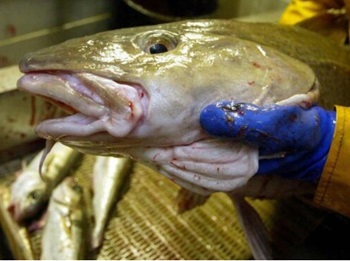 A trilateral agreement between the UK, European Union and Norway covers the total allowable catch (TAC) limits and management measures for jointly managed stocks in the Nort Sea. It has delivered quota increases for all six stocks – cod, haddock, whiting, plaice, saithe and herring. These are said to be worth an estimated £199m for Scots’ fishers, an increase of £68m compared to 2023 quotas. The government said this deal reflected positive advice from the International Council for the Exploration of the Sea, an influential group of marine scientists. It has delivered quota increases for all six stocks – cod, haddock, whiting, plaice, saithe and herring. Photos, more, >>click to read<< 14::56
A trilateral agreement between the UK, European Union and Norway covers the total allowable catch (TAC) limits and management measures for jointly managed stocks in the Nort Sea. It has delivered quota increases for all six stocks – cod, haddock, whiting, plaice, saithe and herring. These are said to be worth an estimated £199m for Scots’ fishers, an increase of £68m compared to 2023 quotas. The government said this deal reflected positive advice from the International Council for the Exploration of the Sea, an influential group of marine scientists. It has delivered quota increases for all six stocks – cod, haddock, whiting, plaice, saithe and herring. Photos, more, >>click to read<< 14::56
Seal hunt advocate takes issue with EU president’s claim that Indigenous exemptions are working
 The European Union’s ban on seal products did not feature heavily — if at all — during discussions between Canadian and European leaders on Friday in St. John’s, but one comment made during a news conference has drawn the ire of a group that advocates for seal harvesters. European Commission President Ursula von der Leyen told reporters she believes the exemption for Indigenous sealers is going well. Doug Chiasson, executive director of the Fur Institute of Canada, was taken aback by her comments. The biggest issue, according to Chiasson, is that the 2009 ban destroyed the existing market for seal products in Europe. When the Indigenous exemption was introduced in 2015, he said, there was no longer a market for the products. >>click to read<< 13:52
The European Union’s ban on seal products did not feature heavily — if at all — during discussions between Canadian and European leaders on Friday in St. John’s, but one comment made during a news conference has drawn the ire of a group that advocates for seal harvesters. European Commission President Ursula von der Leyen told reporters she believes the exemption for Indigenous sealers is going well. Doug Chiasson, executive director of the Fur Institute of Canada, was taken aback by her comments. The biggest issue, according to Chiasson, is that the 2009 ban destroyed the existing market for seal products in Europe. When the Indigenous exemption was introduced in 2015, he said, there was no longer a market for the products. >>click to read<< 13:52
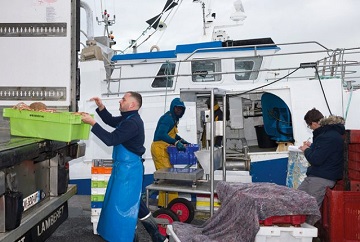
The European Union’s Plan to Ban Bottom Fishing is Causing Widespread Outrage
The plan, which seeks to ban bottom trawling in protected areas, has caused widespread demonstrations, disruption of work in ports, and the launch of a protest movement by fishermen in France called “Blocked Ports”. Although the Commission’s proposals do not represent new legislation, and will not be implemented soon in a way that satisfies some environmental protection non-governmental organizations, they have been met with strong opposition from a number of member states. There was outrage in Germany, Spain, Portugal, Italy, Ireland and Denmark, who feared the plan would endanger the entire fishing industry. The “Marine Action Plan” for sustainable fishing was announced on February 12, and it includes initiatives to phase out deep-sea trawling in protected areas. >click to read< 08:51
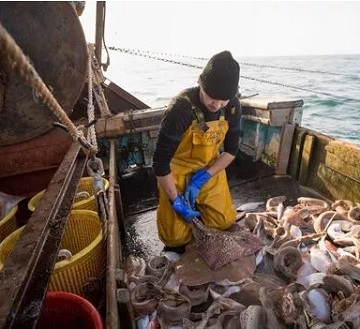
UK fishing industry ‘on its last legs’ as Tories accused of ‘betraying’ coastal towns
Fishing rights for EU vessels have proved to be a major bone of contention for the industry since leaving the bloc more than three years ago. Brexit fury has exploded after claims the UK fishing industry is “on its after legs” with Boris Johnson and the Tories accused of “stabbing fishermen in the back” over the deal with the European Union. The former Prime Minister had promised to protect the industry and insisted the UK would “take back control” of its waters before signing a trade deal with Brussels more than three years ago. The fishing agreement states there would be a five-year transition period that would see EU boats continue to gain access to UK waters until 2026. At the time, Mr Johnson admitted some concessions had been made in talks with the EU. >click to read< 09:43
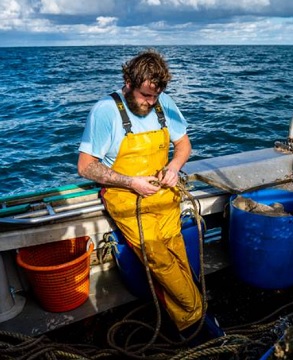
Is the UK really allowed to catch more fish because of Brexit?
British politicians earlier this week praised the results of the EU-UK 2023 Brexit fishing quota negotiations, saying the UK will be able to catch 30,000 more tonnes of fish than if the island nation had remained within the European bloc. The UK fishing industry will be allowed to catch 140,000 tonnes of fish in 2023, instead of 110,000 tonnes if Brexit had not happened, Fisheries minister Mark Spencer said on Tuesday. The amount of fish that the UK can catch in 2023 has actually remained the same or similar to previous years. So why are politicians latching on to it now? >click to read< 08:09






